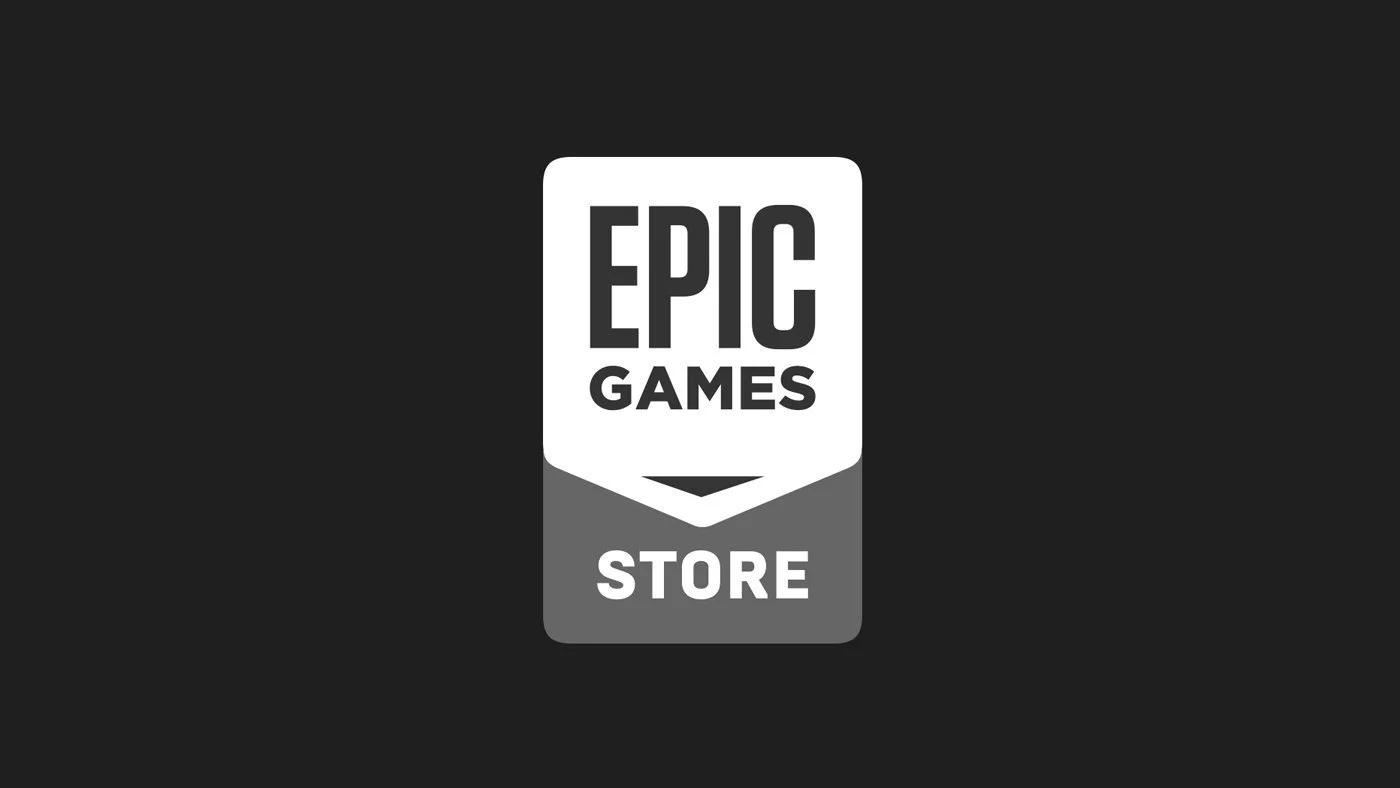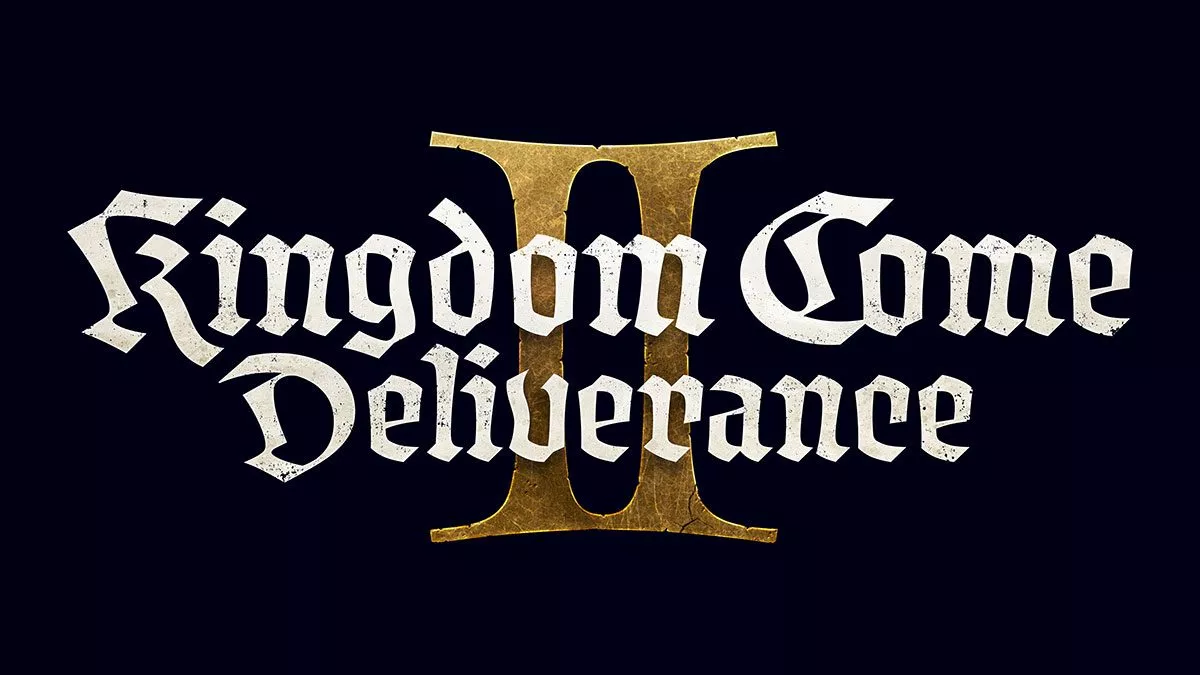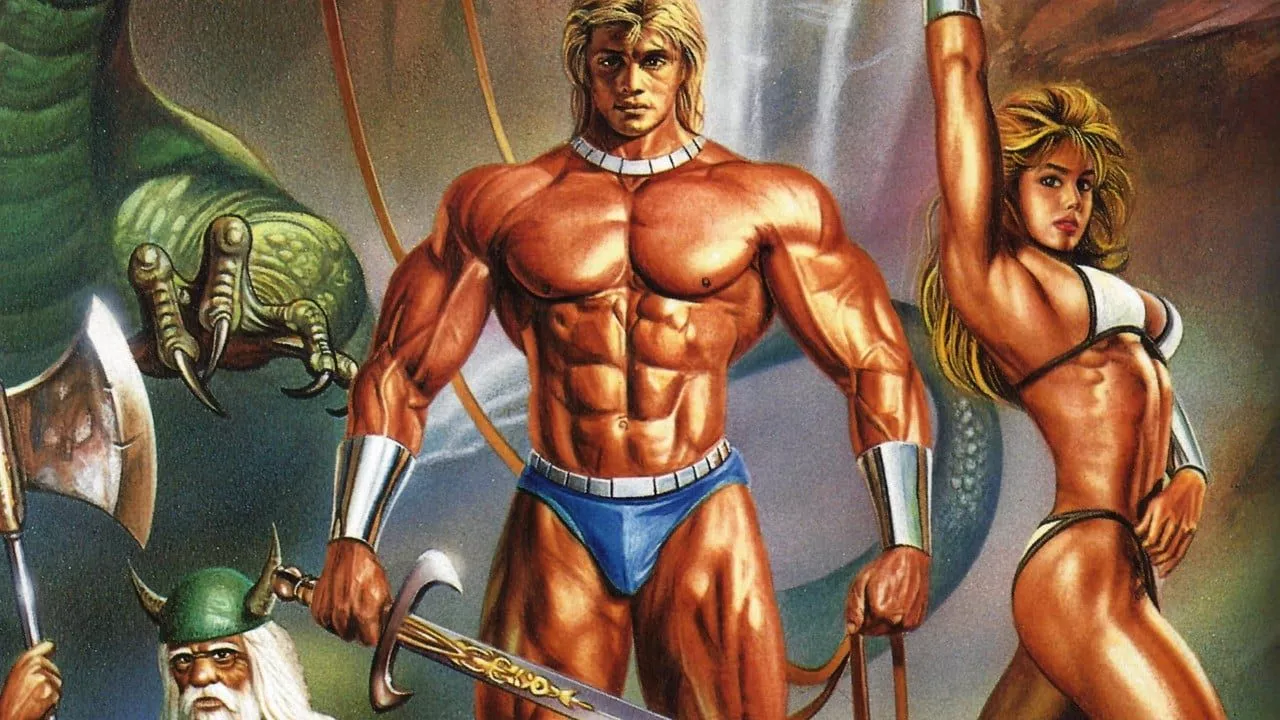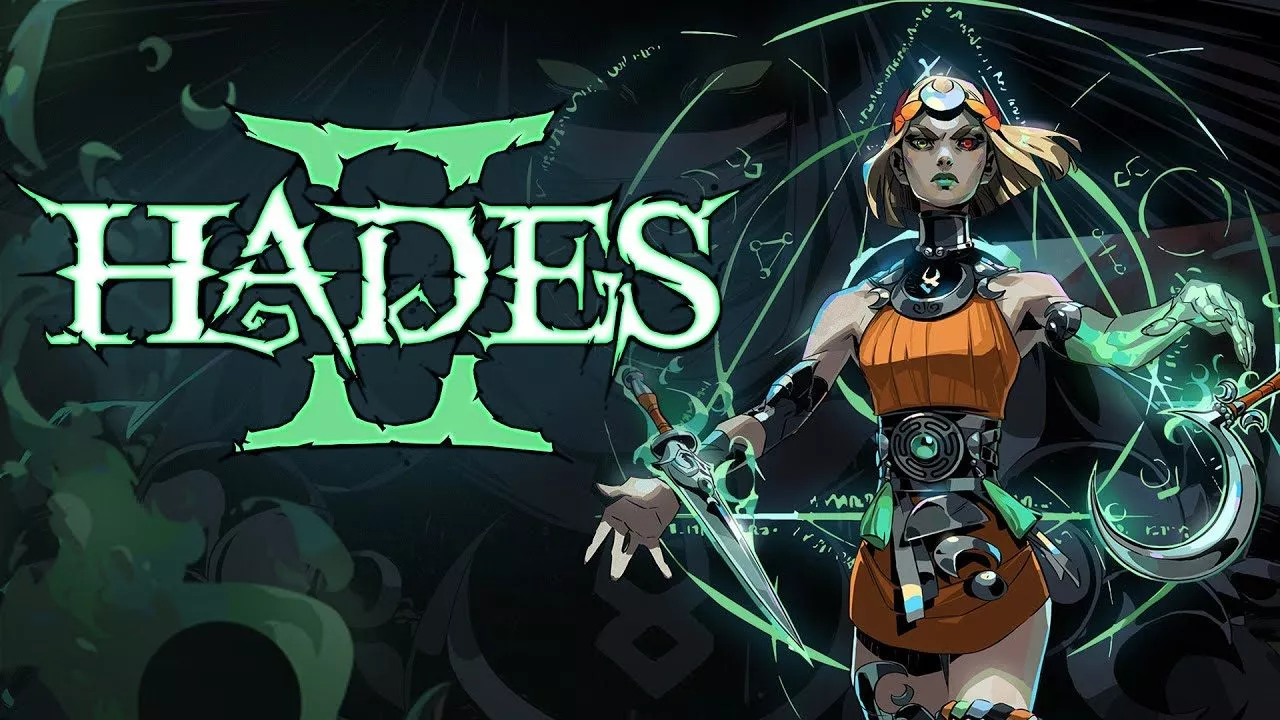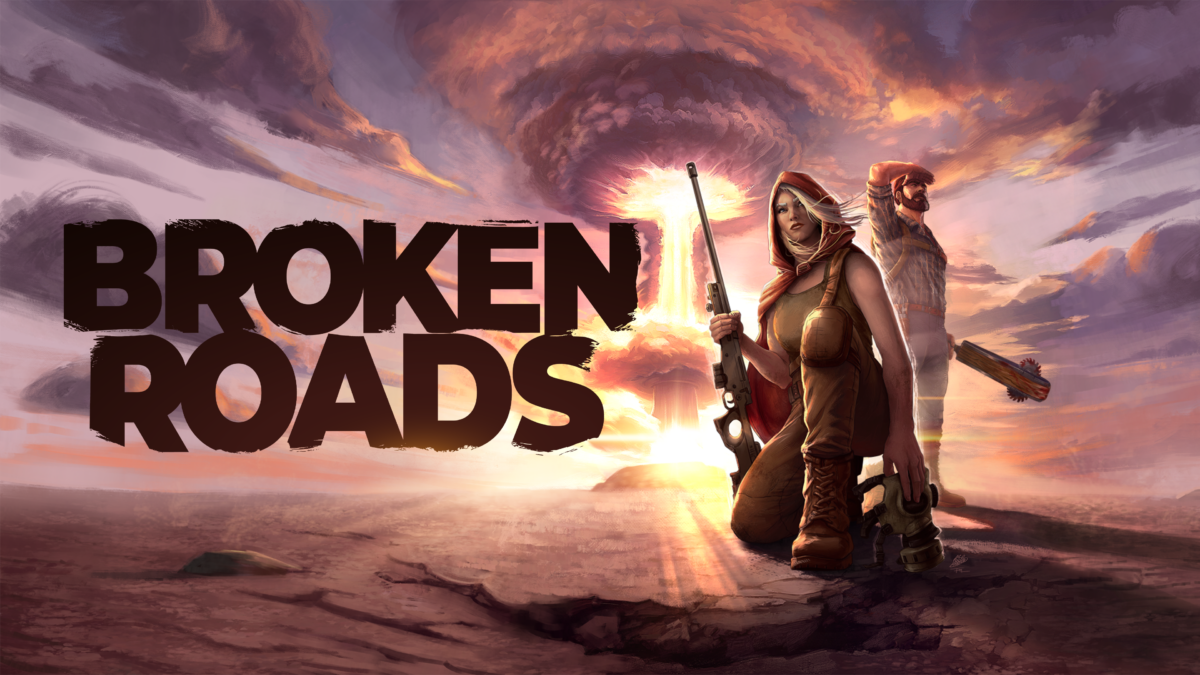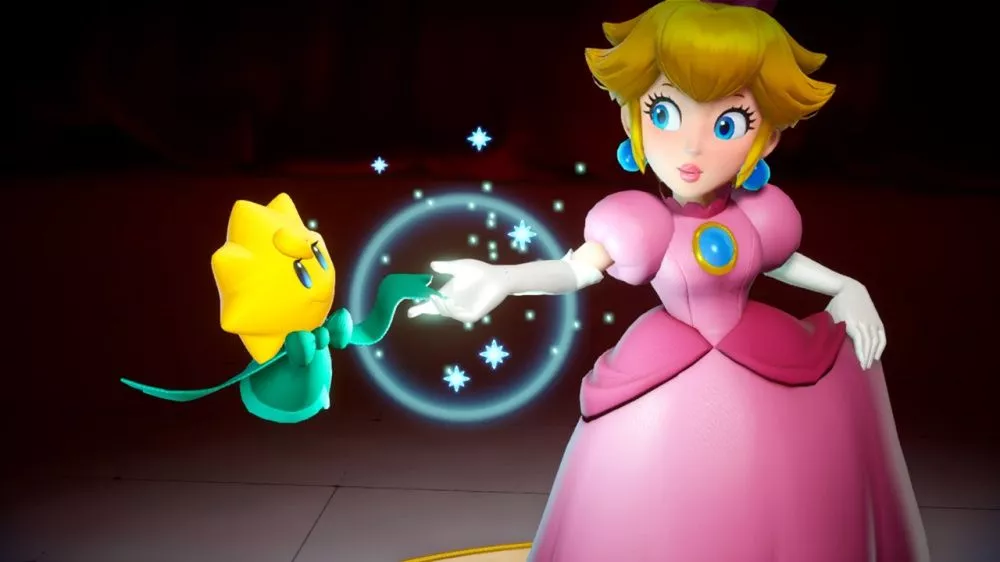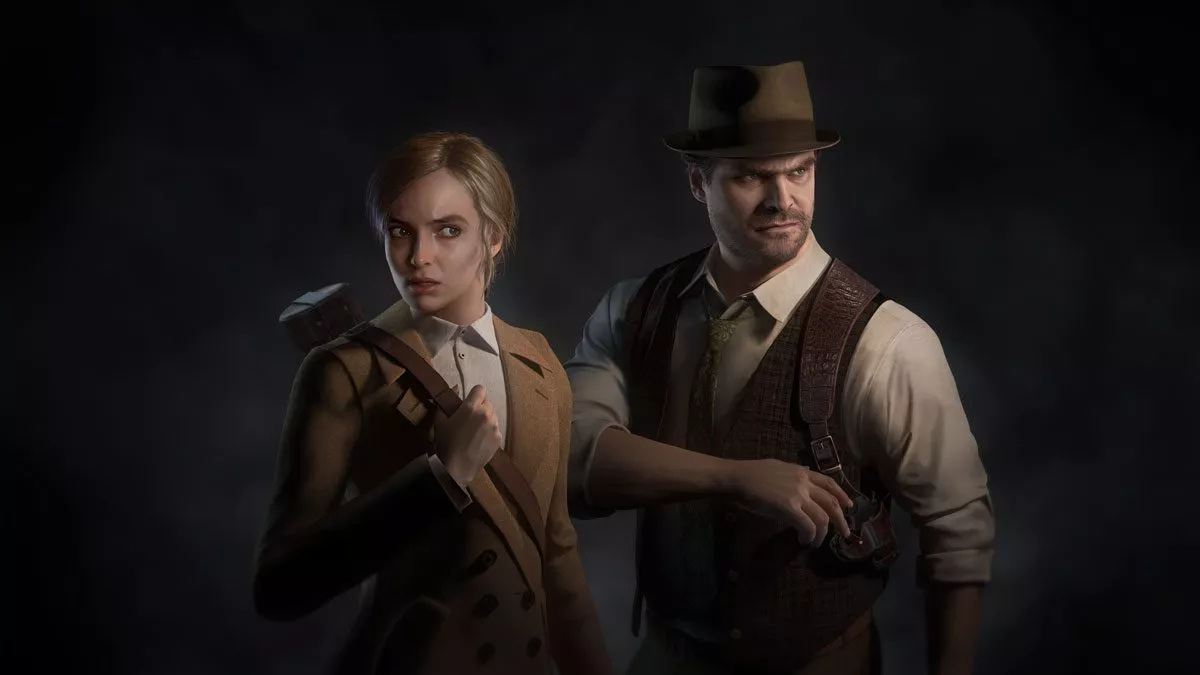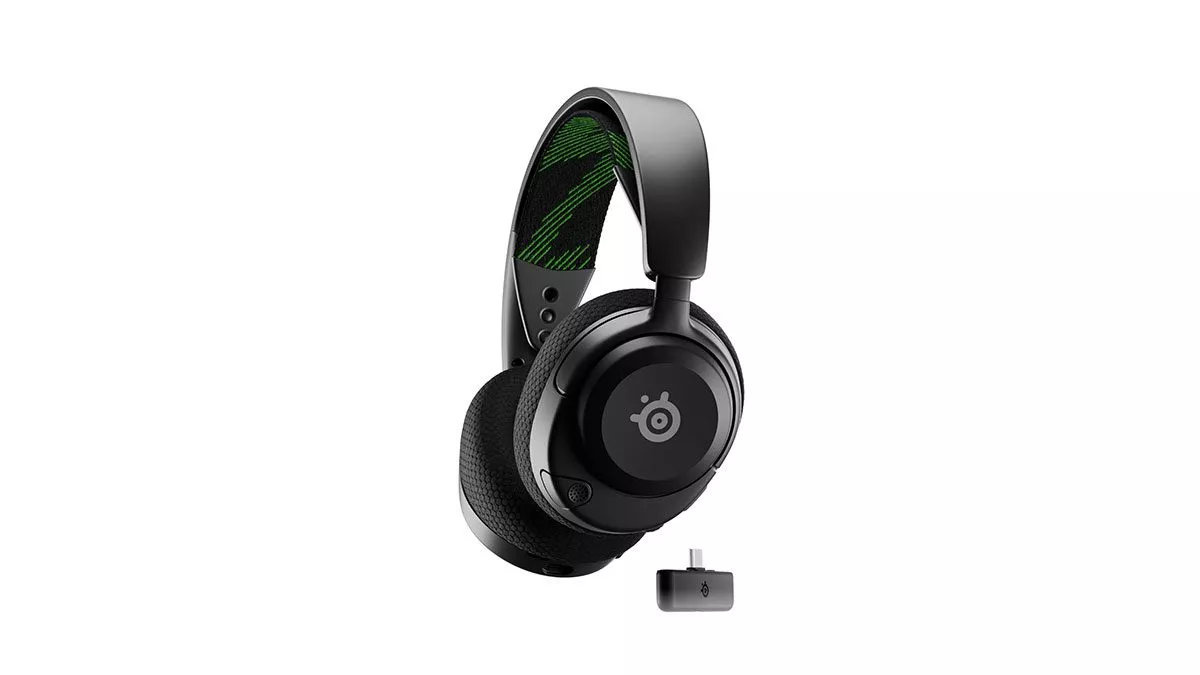Microsoft versus Sony, Battlefield versus Call of Duty and Forza versus Gran Turismo. These are some of the rivalries that can get people talking about console wars. “Game On or Game Over” is your place to get inside the minds of Nicholas and Andy as they seek to find the true meaning of gaming and tackle some of gaming’s most controversial subjects. Both are award winning authors – although the awards haven’t been mailed or created yet — but trust them. Would they lie to you?
Nicholas: Before Wolfenstein: The New Order was released (which I might add, is the only new game I’ve bought for a while now), I was playing through Super Mario World on my Wii U via the Virtual Console. While doing so, I thought about how some titles on the VC were only available for the Wii U, some only for the 3DS, and then there were others that were available for both. Of the latter, it struck me as odd that even if I purchased a digital game for my Wii U, I wouldn’t be able to play it on another Nintendo console (in this case the 3DS) without having to purchasing it again.
To kick things off this week, I wanted to get your opinion on the situation above. For you, do you think it’s a reasonable expectation that if a gamer purchases a game on one platform that they should be able to access it on another? If not, do you think there are any exceptions where you think it should be possible?
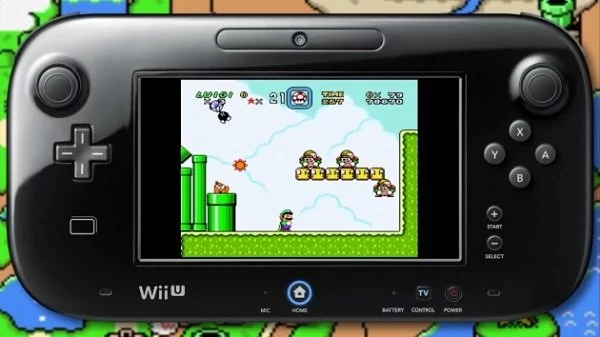
Andy: On the surface that seems like a rather innocuous question, but when you really start to look at it there are a number of factors that come into play that make it more confusing. Let me start first by simply answering your question as it is; Do I think it’s a reasonable expectation to be able to buy a game on one platform and access it on another? Honestly, no. I think it’s more entitlement and want than it is a reasonable expectation. Sure we all want to save a buck or two and have access to our ever growing catalog of games, but the reality is developers and publishers need to make money as well. Take your example of Wolfenstein: The New Order, let’s say you bought a digital copy of it on your Xbox One, would you then expect to have the 360 digital copy as well? My guess is you just said no. If you did say no, why is that? Isn’t it the exact same scenario that you mentioned above?
We talked about this a couple months back and I’m still of the opinion that if you purchase a copy of a game for the normal retail price, whatever that may be for that title, you are entitled to access it on one platform. Now, if publishers started offering up so called “deluxe” editions where for one set price you get access to the game on two platforms, or three, or however many platforms, that’s a different story. If a gamer buys a game, they choose which platform they will be getting it on and off they go. To expect publishers and developers to, in essence, hand out free copies of a title is unreasonable. A select few PlayStation titles have cross-buy support where if you buy the PS3 version and can also play it on the Vita, but that’s more of an exception and not the rule. One of my favorite games on the Xbox 360, Pinball FX2, was announced two weeks ago to finally making the jump to the Xbox One with the caveat that all the tables purchased on the 360 version didn’t carry over at all. As expected there was quite a bit of pushback from pinball fans and just last week they amended that decision and said all tables purchased would carry over. That change necessitated a delay in when Pinball would drop on the Xbox One, but it’s a delay I’m OK with.
The question is, would I have been OK with paying for all those tables again on the Xbox One – keeping in mind I have every 360 table which is around 50 I believe – the answer is: yes, but I expect a small upgrade-type fee. Similar to the $5 fee that Xbox One will have for Minecraft to upgrade to the current gen system for those who own it. Because, when I bought the tables the first time, I do so for the 360 and there was no thought involved about other platforms. Heck I own Pinball on four separate platforms and purchase those tables each time even though they are identical. To expect a publisher to do that I think is far-fetched, sure it’s nice when it happens, but it’s the exception not the rule. I’m guessing you don’t agree though, so let me ask you – what’s the benefit to the publisher for doing that, especially on games that don’t feature microtransactions or other revenue-generating applications?
Nicholas: Starting with the question in your first paragraph, my response was ‘no’. Perhaps I’m being hypocritical here, but this is my logic. I don’t think it is reasonable for gamers to think that just because they purchase the game on one platform that they’re entitled to own it on another for no additional cost. For example, if I purchase Skyrim for the Xbox 360, there’s no logical reason why I should be allowed to have another copy on either the PS3 or the PC for free. The difference is, and this is where my argument might fall apart, with the Virtual Console option above, these are all historic games that were released for the first time potentially 10-20 years ago. When it costs roughly $5-10 for me to purchase Super Mario World on my Wii U, and the 3DS version is literally no different, why would I have to buy it again? If they are both Nintendo consoles and if I buy them on the Virtual Console on either device, surely I should be able to transfer them across in some cross-play type of fashion? If the two versions were different, and if the games were released recently (that is, within the current or last generation) then I don’t think gamers should be entitled to multiple copies, but for old games, I kind of think differently. Perhaps I’m just throwing logic out the window because I’d love to take my save file on my Wii U and play it when I’m out and about on my 3DS?
Regarding your second question, the answer is ‘nothing’, and I suspect you knew I was going to say that too. We’ve discussed in the past that developers are out to make profit and that isn’t a bad thing, I guess I’m just expecting more for nothing. I completely agree with your idea that spending a little bit extra on games should allow you to have multiple copies (especially considering it means extra revenue – no matter if it’s only a fraction of the cost of the second game), but what would be a fair price for this? $10? 10%? If the cost of a standard game is $100 then paying $110 for two copies isn’t a big deal, but in the case of Virtual Console games, an extra $10 is essentially the price I paid for the game to begin with!
You mentioning the situation with Pinball FX2 and the table transfer is great because this is something I wanted to discuss. With Zen Studio listening to fan feedback (or is it complaints?) and also with the recent trend of cross-play we’ve noticed with Sony between the PS3 and the Vita, do you think that we’re starting to see a potential move towards this cross-platform game distribution? If distribution does move towards greater reliance on digital methods for not just PC but also home consoles, is this something we can expect to see happen with say the Xbox One and PC, or maybe the 3DS and Wii U? If not, what do you think is preventing it from happening?

Andy: I think it’s easy for us to look at a game and say it’s the same on one platform as it is on another. Visually and content-wise that may be the case, but I have to assume actual game code-wise they are different just due to the platforms and requirements. I can’t claim to have any knowledge about Wii U and 3DS but are there currently any games out there that allow you to bounce between the two systems, or move a save file from one to the other and then back? Or maybe a better question there would be how many games are currently available for both? If it’s less than a handful maybe Nintendo just doesn’t have the incentive to actually put the framework together to make it happen. That actually seems like more of the reason behind why not.
On a broader scale though I think it boils down to regulation. Not from a political standpoint but more how do the developer/publisher insure against multiple users/accounts taking advantage of one purchase? Even if it’s only a strictly digital option there are still ways gamers can exploit it. For instance you can be online on the Xbox 360 and the Xbox One at the same time. What’s to stop me from giving/selling my Xbox to a friend or family member and when we purchase a game go in half each and we can both play? Sure it saves me money, but it also takes a sale away from the developer. Like you said, developers are out to make money and if cross-buy or those ‘deluxe’ editions become a more mainstream thing they need as many safeguards as possible to ensure they are not shooting themselves in the foot and losing sales. It’s easy for us gamers to be on the sidelines and say “well they should be offering this or that” because, as much as we think we know, we don’t know half of what’s going on behind the scenes.
My guts says that as we go deeper into this next generation of consoles we will see more and more ways of connecting accounts and having a single purchase carry over to other platforms. Just last week Electronic Arts announced EA Access, a monthly/yearly fee to play a catalog of their games. Depending on its success, and I do expect it to be rather successful based on what I’ve seen, I can easily see other publishers jumping in and doing similar projects. Going off of EA’s price model of $30 USD for a year, imagine spending $90 USD a year and having access to EA, Ubisoft and 2K catalog of games. For less than the price of 2 retail games you potentially have a ton of content at your fingertips. Certainly an intriguing idea and one I hope happens sooner rather than later.
I think it’s safe to say that publishers want to go towards the digital model. It eliminates trade-ins, saves on shipping and materials, and gamers don’t have to worry about not getting a copy or waiting for delivery. Things like data cap usage, unreliable internet and general slow internet speeds are three of the biggest deterrents of the digital model. The lack of trade-in value for digital releases and the lack of true “ownership” of the game are most gamers concerns. Do you think a way for publishers to get gamers to fully embrace the digital model is to offer multiple platform copies to make it worth it? Aside from Xbox Live Arcade titles and the free Games for Gold or PS+ titles, I haven’t purchased a digital game for my consoles because I haven’t seen the benefit to doing so. For me, getting a multi-license edition would really make me consider it. Do you foresee that as being the carrot publishers need to nudge the masses to try the digital model?
Nicholas: You certainly raised a valid point above with the logistics of making that cross-Nintendo game sharing system work. It was something I was thinking about when I spoke earlier, but unless Nintendo adopt a cloud-based save system (which I honestly don’t see happening anytime soon) it just doesn’t seem feasible. In the end, it will just be another one of those changes that I’d love to see happen, but realistically I’ll have to accept that it won’t. *sigh*
Moving on, regarding the movement towards digital distribution, I do think those incentives would do well to entice some console gamers to seriously consider downloading their games as opposed to buying physical copies, but the question I’m wondering is – is it enough? Excluding the option to buy a game on the Xbox One and also have it on the Xbox 360 too (because let’s be honest – people with the new consoles don’t want to play on their old ones), how many gamers will benefit from being able to own a game on both their Xbox One and their PS4? Yes, there are gamers out there who have all the current generation consoles already, but is this the majority? Even if it was, how many people really have the time to play games on two systems? If I use myself as an example, in hindsight, the decision to buy a PS3 a few years ago was a major waste of cash. Mainly because it was hardly used compared to my Xbox 360. Given this, there’s almost no reason why I’d make the same choice this generation now that I have an Xbox One. So, even if I could buy the next Need For Speed and have the option to play it on more than one console, would I actually take advantage of it? Unlikely. For me, this wouldn’t be enough of a move to make me move to digital distribution.
Let’s put my opinions aside though. Let’s assume we could buy a game and that we could have the option of playing it on both the Xbox One and the PlayStation 4 – could it ever really work though? So far we’ve been neglecting two major players in this industry who, as far as I can see, would never agree to such a decision. I am of course referring to Microsoft and Sony. When I was in high school I would remember talking about NFS Underground 2 with my friends during lunch, and I always wanted to be able to compete with them – the problem was, I was a Nintendo gamer and they owned PlayStations. Cross-platform multiplayer has never been possible in the past and I question if it ever will. Do you think these two hardware giants would ever come to an agreement that would allow players from either side to verse each other? If not, what reasons do you think as to why? Is it even possible to begin with?
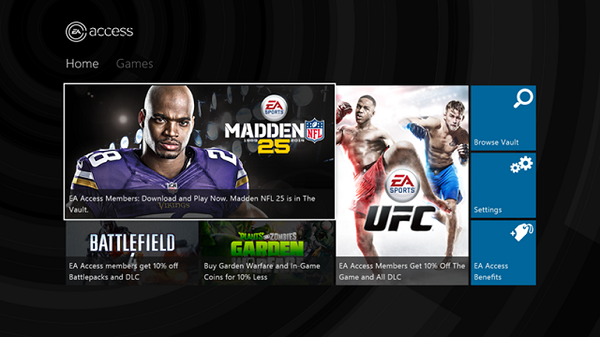
Andy: I think that’s something many gamers have considered, and wanted, in the past – and ever more so now with the new generation of gaming. From a gamer’s standpoint there’s a larger group of gamers, more competition, and the possibility of having huge battles. Of course from a console maker’s viewpoint there is no reason it should ever happen. Exclusives are one of the biggest selling points to a console. Want to play the newest Halo game? You’ll need and Xbox. Want to play Uncharted? You’ll need a PlayStation. Another system seller though is what your friends play. If there is a friend or group of friends I want to play Battlefield with then I need the platform that they play on. Peer pressure is a huge system seller and both Microsoft and Sony would be crazy to give that up.
Think about going into a Burger King and ordering a Big Mac. Sure Burger King and McDonalds are essentially the same – they are both fast food places that sell hamburgers, but their recipes and options are slightly different than each other. Same with Sony and Microsoft and it’s even truer with 3rd-party games. If I wanted a Big Mac but I knew I could get one at Burger King I would have no reason to ever step foot in a McDonalds again. It’s the same with consoles really, if I knew I could play with people on PlayStation without having to get one it’d be a no brainer. Do I think the technology is there to allow it? I think if they wanted to do it they could pull it off, but the bigger question is would they want to?
I think the answer to that is no. There is no real motivation or benefit for them to put that framework into place and implement it. I think you also hit on a good reason why we don’t see multiple license versions of games as well. If I buy a game for my Xbox One I’m 99% sure I’d never play it on the 360 no matter how much I like it. If I want to replay it I can do so on the Xbox One. The only way I can seeing it being worth it would be for a Wii U/3DS combo or PS4 (PS3)/Vita combo, because then at least you’re allowing me to play it while I’m not at home if I want. I think something like that has more benefits to a gamer than being able to play a game on both generations of one platform. Maybe we are just overthinking this though. Do you think the ability to play a game on multiple systems is really something gamers are even concerned about right now? What I mean is, there are so many other things i.e. season passes, day one DLC, incomplete/buggy released games, huge updates, etc. – is this something that gamers should even have at the top of their list of wants and needs?
Nicholas: You know, as I think about it, the answer leans towards no. I think you are completely right, outside of this article now, I can’t remember a recent time when I stopped and thought to myself, “I wouldn’t mind if I could play this game with friends on another brand of console”. Like you’ve said, I’m more concerned right now about the fact that I’ve downloaded 11Gb worth of updates for Wolfenstein, and that my hard drive is 40% full when I only own five games. Cross-platform play would be nice, but when I’m killing Nazis it’s the last thing in my mind.
I think another reason for not being concerned about cross-platform functionality is because a lot of gamers are already stuck in their ways as far as console preferences are concerned. Taking myself as an example, I was an Xbox 360 fan last generation and I’m an Xbox One fan in this one. I have friends who owned PS3s in the last generation and now they own PS4s. You mentioned peer pressure before and I think that certainly plays a part, but I also think that most gamers who are/have bought the new consoles who also owned the last generation ones were already decided on which team they were going to rally behind.
As we’ve been writing this week’s article, I’ve been realizing that these features that I thought I wanted really weren’t that big a deal. Furthermore, had these features been implemented I’d maybe not even use them. So to wrap up this week’s article, I wanted to put the focus on you. Think of all the changes and innovations that you wanted to happen in gaming since you first picked up a controller. Of those changes or innovations, whether they’ve actually happened or not, which do you think is the one that you wanted the most, but in hindsight isn’t really that big a deal?
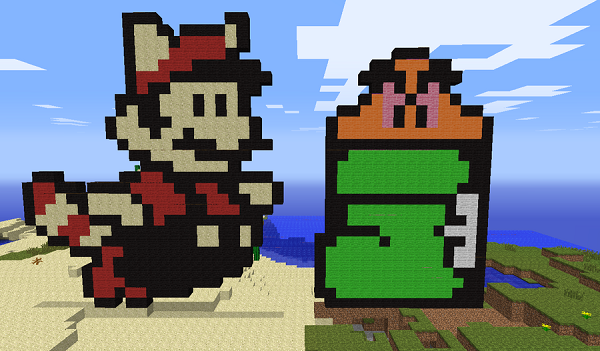
Andy: That’s actually a pretty easy question for me personally – backwards compatibility. Those two words are words that most console gamers have said at one time or another. Usually along the lines of “I can’t believe there isn’t backwards compatibility!” or some variation of that phrase. I will admit from the original Xbox to the Xbox 360 I was one of those that really wanted the feature, but once the 360 was released I barely ever touched an original Xbox game. So when the Xbox One was announced and a lot of people were up in arms about the lack of backwards compatibility I just shrugged and moved on. Since the Xbox One has been out I have turned my 360 on for two games, Pinball FX2 and Minecraft. Both which will be out (or at least are scheduled to be out) in August. All the pinball tables I like will transfer over and my Minecraft saves will too. So, I look at my shelf of Xbox 360 games and think what games I may legitimately come back to and play and there are only two – Skyrim and Mass Effect 3. I have started both, am a good way into them and I’m finding myself to be really enjoying them too. To be perfectly honest though, I’m not sure I will ever finish either because I just don’t feel the need to turn the 360 back on.
That said, if the Xbox One played 360 games I don’t think I’d feel any different either. I think Sony and Microsoft made the right decision by not putting effort into something that in a year people would largely ignore. Some wanted to make it a big issue, but the reality is you don’t have to get rid of your old system. I think this cycles back to your original question that started off this discussion. Gamers are a passionate bunch and are quick to jump on social media, blogs or gaming forums whenever they think they have been wronged, or a company does something that they don’t agree with. Yet when you look at most of the complaints and jumping around gamers are a pretty entitled bunch. I’d even throw myself into that statement. There have been things that games have done (or not done) that I thought should (or shouldn’t be) have and I voiced my displeasure about it. Looking back on what I’ve said though I realize that I was complaining not about the game and the decisions made, but what was best for me. Let’s be honest, we always care more about ourselves first and others second, it’s human nature.
It’s really easy for us to be sitting at home looking at articles about decisions game companies have made. We (even I am guilty of this) read an article, or watch a video in under ten minutes and then immediately jump to conclusions of whether the decision the company made was good or bad. The reality is, that article or press release is the culmination of a process that, quite often, has taken a good deal of time to reach. Companies aren’t usually successful if they make snap decisions. Those that are methodical and look at things from multiple perspectives and make the best course of action for them are the ones that succeed. Yes, gamers like to think we know what’s best for the industry but that’s not usually the case. For every game that allows cross-buy there’s a decision on why allowing it makes sense. It’s telling that those cross-buy games are the exception and not the rule. If it made sense for every company we’d be seeing a lot more of it. For everything in gaming there will always be a cost-to-benefit quotient, which is why free copies of games on other platforms doesn’t make realistic sense for the developer or publisher. We simply can’t get innovation and excellence if they’re going to be giving away free games all the time no matter what we want.
Tune in next time for the next instalment of Game On or Game Over. If you have any ideas for our next article, feel free to contact Andy or Nicholas on Twitter.
This article may contain affiliate links, meaning we could earn a small commission if you click-through and make a purchase. Stevivor is an independent outlet and our journalism is in no way influenced by any advertiser or commercial initiative.


